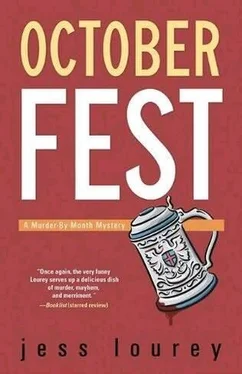Ben would never know what a gift he’d received. We broke up the next morning without ever really talking about it and proceeded in true Midwest fashion: we forgot we knew each other. I felt a little bad that he had to find a new restaurant to hang out in, but such is the price of a doomed relationship. I’d been with a handful of men since then, and though I was far from pro, I thought I’d seen enough to know when a guy asking me on a date really wanted to get to know me versus wanted to stick a toy surprise in my cereal box. That’s why I was so puzzled by Johnny’s letter.
Inside the envelope was a handwritten invitation requesting my presence at the Big Chief Motor Lodge this evening at nine p.m. in room 20. The Big Chief was the newest business in the growing town, opening its doors to the community last week. It sat on a key location one hundred feet from the shore of West Battle Lake, within eyeshot of Chief Wenonga, the glorious fiberglass statue that graced the perimeter of the town as well as my dreams. The statue was the gold standard of political incorrectness, but whenever I looked at it, I got all swoony and my heart skipped a beat. The statue was fashioned after the actual Chief Wenonga, an Ojibwe warrior. A hundred and some years ago he’d led the charge against the Dakota, another proud tribe who’d put down roots in this area.
History remembered Chief Wenonga as a gifted leader and fighter. Battle Lake, however, erected him as a stereotypical Old West Indian with full feather headdress snaking down his back, inky eyes and proud nose on a face slashed with war paint, adorned with leather pants and moccasins, an erect tomahawk in the left hand suggesting glorious things. My mind may never have gone there if the Chief statue wasn’t also shirtless, the star Chippendale Dancer of the fiberglass world. Plus, he was emotionally distant, which up until Johnny, had been the kind of guy I was attracted to.
Ah, Johnny. Open and kind, he liked to garden, had a degree in biology from the University of Minnesota, and he was taking care of his sick mother during the day and rocking out as the lead singer of a popular band at night. He was perfect, and therefore all wrong for me. So why was he making this low-class move of asking me to meet in a hotel, and why put it on a written invitation suggesting I “dress casually?” That sounded completely unlike him. But, I had a pretty good idea who it did sound like.
____________________
The Senior Sunset is maple-lined walks with commemorative benches on the outside, institutional rooms with locked doors and paintings of pastel pastiche on the inside. From what I gathered, before Mrs. Berns had arrived, most of the clients at the Sunset spent their time watching TV or moaning for someone to brush their hair. Now, they giggled in corners as they passed black market copies of GQ and Mademoiselle , played cards for money, and hatched plans for afterhours slumber parties. Instead of following the gray road to their deaths, they pressed against the confinement of the home to squeeze bootlegged joy, the best kind, out of their final years. And it was all because of Mrs. Berns, who had followed society’s rules for eighty years before deciding it was finally time to live by her own. And society always hates a deviant when it isn’t invited to the party.
According to local gossip, she’d arrived in the area in the 1920s filling the typical Minnesota farmwife role, raising seven kids during the Depression, taking in extra sewing to make ends meet, hardworking and responsible every minute of the day. She hadn’t slowed down even after the kids moved out and her husband’s dairy farm started turning a profit, working dawn ’til sundown canning, mending, cleaning, and helping with chores. Her husband had been a solid man, no great romantic but a stable Swedish farmer who paid the bills and didn’t yell at his wife. Mrs. Berns had completely fulfilled her hausfrau duties right up until her husband’s death by heart attack a decade ago.
Legend had it, that’s when Mrs. Berns underwent The Change. Her husband’s body was barely cold when she put the farm on the market and moved to town. With a population under eight hundred in the winter and more bars than churches, you’d think Battle Lake would have welcomed its newest resident, but her sudden penchant for going braless combined with her willingness to say whatever was on her mind didn’t go over well with the more conservative members of the community. When Conrad, her oldest son, got word of his sweet mother’s out-of-character behavior, and specifically her newspaper-documented fistfight at the Rusty Nail over a man of questionable reputation (“Granny Goes Gonzo”), he promptly checked her into the Senior Sunset on threat of getting her declared mentally incompetent if she didn’t comply.
On the surface, she bowed to his command. Behind the scenes, though, Mrs. Berns got right down to the business of circumventing the rules of the nursing home, sneaking out after hours to do as she pleased. Before long, she was the don of a profitable black market operation fencing cigarettes, airplane-sized bottles of liquor, and Tom Jones posters to those on the inside. After a near mutiny when he tried to crack the whip against these illicit antics, the director of the Senior Sunset chose to turn a blind eye to Mrs. Berns’ behavior on her word there would be no more public brawling.
Mrs. Berns likely had her fingers crossed when she made that agreement. That’s about when I met her, all fluffy-haired, bobby-socked, capgun-toting (don’t ask), four-feet-eleven inches of her. Since then she’d taught me how to dirty dance, defend myself using moves not widely practiced outside of a pig-castrating shed, and live without regret. To be honest, I was still working on that last one. But as much as I loved her, she had a mischievous streak as wide as the Mississippi, and I smelled her fingerprints all over Johnny’s invitation.
I signed in at the front desk. My lunch break was prime visiting hours and the check-in sheet was almost full. I smiled nervously at the nurse behind the desk, concealing the cloth bag I was carrying behind my back. It contained the secret to prying the truth out of Mrs. Berns: dark chocolate and a miniature bottle of red wine. I still couldn’t wrap my head around the fact that nursing home residents were not officially allowed liquor, which was the crime of the century as far as I was concerned. My visiting privileges would be revoked indefinitely if I got caught with it, but it was a risk I was willing to take to get the Oracle to speak.
I wasn’t sneaking toward Mrs. Berns’ room, but I did stop when I heard the whispering inside. Followed by a giggle. That’s when I noticed the cross-stitched, “Bless this Home” circle hanging off the doorknob, the signal that if this was a van, it’d be rocking so don’t bother to come knocking. Glancing at the clock on the wall, I realized I didn’t have time to wait. Buying the chocolate and wine had eaten up almost half an hour, and I needed to reopen the library at one o’clock. I knocked at the door, delicately and with more than a little fear.
The giggling stopped. “You knock like a girl.” This was followed by a rustle of fabric and light footsteps. “This better be an emergency,” she said on the other side of the door.
Her orange-shaded head popped out looking inconvenienced.
“Hi, Mrs. Berns.”
“I made him write the invitation, it’s a surprise so I can’t tell you more, and it’s not what you think.” And she slammed the door in my face.
She must have a steamy number in her room or she wouldn’t have passed up an opportunity to make me squirm, but curiosity was the one vice I consistently entertained. I knocked again, firmly.
Читать дальше












